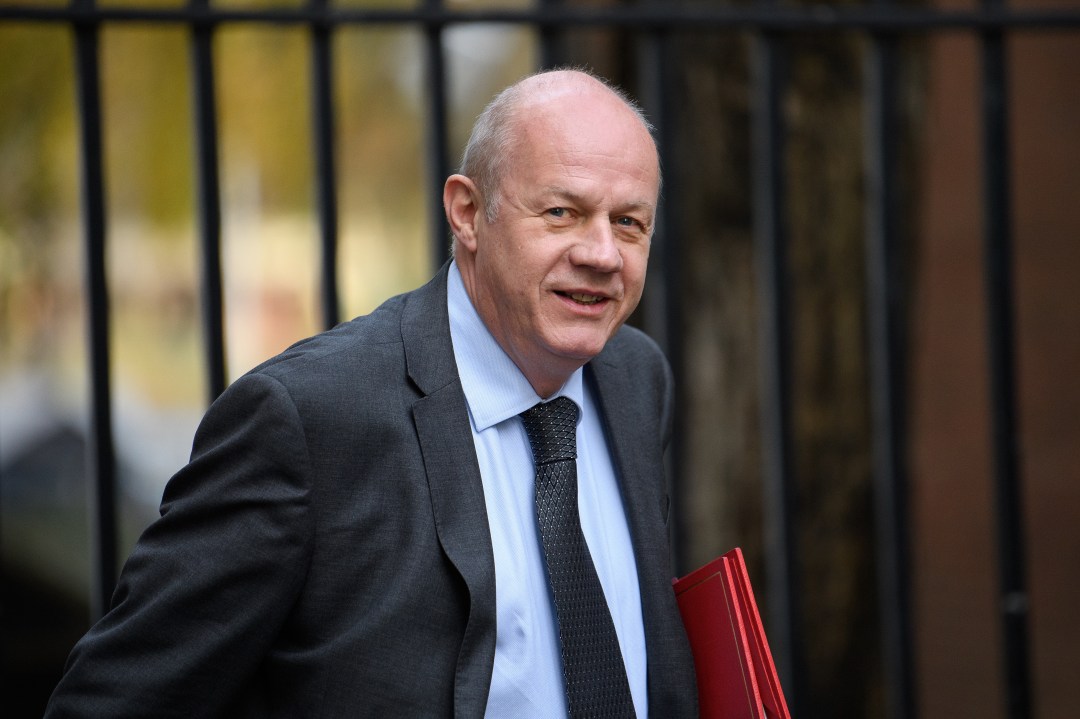How do you solve a problem like the dwindling Conservative youth vote? That’s the question Tories have been grappling with today at the Bright Blue conference. As party members gathered at the liberal Conservative think tank event, one remarked that what the party needed was a Tory version of Momentum – ‘we’ll only be fine when a Conservative politician can go to Glastonbury and not be booed’.
While that seems a rather ambitious feat, Damian Green did manage to set out some of the changes he thinks the party needs to make in order to win back young metropolitan voters at the next election. With the Tories lagging behind Labour by 30pc among 18- to 35-year-olds, the First Secretary of State said his party could not just ‘stay calm and carry on’. Instead, they need to ‘change hard’. In a sign that this sentiment is echoed across the government, it’s telling that many of the lines from Green’s speech were pre-briefed out by No 10.
Here’s what Green had to say about the challenge facing the Tories when it comes to the youth vote:
‘The discontent with capitalism since the 2008 crash, which is vaguely expressed as being anti-austerity, needs to be tackled head-on. If young people feel the world is not giving them an even break, they look for radical change, even if what is being promised, by populists on the left or right, is just a better yesterday. Ukip hankers after the 1950s, Corbyn’s Labour the 1970s, with both hoping that nobody under 40 reads a history book and sees the glaring faults in those eras.’
Green concluded that the ‘inconvenient truth’ in all this is that the UK deficit still needs paying off. It follows that the Tories need to find a way of sticking with the deficit reduction plan, tackling the growing hostility to capitalism while also making sure the young feel as though they are being given a break. Green pointed to the Tories’ plans to build 1.5m homes by 2022 as one way to improve the party’s appeal – as well as an industrial strategy that helps the young find the right employment and a ‘discussion’ on tuition fees.
But not everyone was satisfied by the answers in the room. Party members asked Green how the government could justify the billions being spent on HS2 and the DUP when nurses were not getting a pay rise. There were also worries about how to get younger voters out. Green said that the party needed to reexamine its use of social media – suggesting this could be ‘a much more important way’ than a traditional membership drive knocking on doors.
One elephant in the room was Brexit. Green criticised Labour for constantly changing its position on Britain’s exit from the EU, However, if addressing the party’s own issues with the metropolitan vote, there’s no denying that Brexit presents the Tories with a challenge. In the EU referendum, the YouGov exit poll found that 70pc of 18-24-year-olds voted to Remain. What’s more, in many metropolitan (and heavily Remain) areas, the government’s rhetoric on the EU does appear to have put voters off – just look at the once safe Tory seat of Kensington where the party lost by a handful of votes. When asked whether May’s famous ‘a citizen of the world is a citizen of nowhere’ line was the wrong kind of rhetoric, he conceded that ‘in heightened times – in a party conference speech or even more in an election – there is a temptation to use language that may sound too tough’.
If the Conservatives are to win round metropolitan young voters, they will need to work out a way to find a Brexit deal that pleases both the grassroots members and those would-be voters who see themselves as ‘citizens of the world’.








Comments